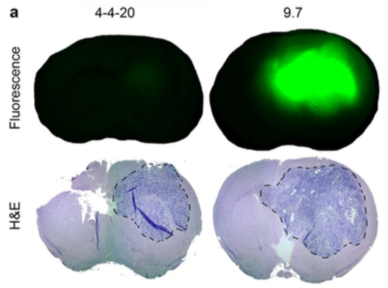
Changes to the gut microbiome associated with structural changes in the brain
Diet-dependent changes in the gut microbiome of rats are associated with corresponding structural changes in their brains, according to a new study by researchers at the University of Wisconsin School of Medicine and Public Health.

Study provides a potential therapeutic strategy for aggressive lymphoma
Researchers at the University of Wisconsin School of Medicine and Public Health have found a molecular regulator that controls cell life in diffuse large B cell lymphoma, the most common, aggressive form of lymphoma.

UW–Madison and VA study veterans and Alzheimer’s disease
More than five million Americans are living with Alzheimer’s disease and experts expect that number to triple by 2050. And veterans face a higher risk than the general population.

UW study uses ‘bio-panning’ to find human antibodies for brain cancer stem cells
Using a method described as similar to panning for gold, Carbone Cancer Center scientists discovered human antibodies for the cancer stem cells of glioblastoma, one of the most difficult brain cancers to treat.

New clinical tool identifies patients likely to have seizures
A new scoring system developed by a UW School of Medicine and Public Health neurologist may help physicians identify which critically ill patients are likely to have seizures.

Social-class discrimination contributes to poorer health
Discrimination felt by teenagers based on their social class background can contribute to physiologic changes associated with poorer health, according to a new study led by a University of Wisconsin–Madison researcher.

Psychopaths’ Brains Show Differences in Structure and Function
Images of prisoners’ brains show important differences between those who are diagnosed as psychopaths and those who aren’t, according to a study led by University of Wisconsin–Madison researchers.

Gene therapy for type 1 diabetes aims to eliminate daily insulin injections
Researchers at the University of Wisconsin School of Medicine and Public Health are one step closer to developing a gene therapy for Type 1 diabetes mellitus – a development that could one day eliminate the need for daily insulin shots and provide a way to better regulate glucose metabolism, a factor critical for preventing the most problematic complications of the disease.

New study shows how cells can be led down non-cancer path
As cells with a propensity for cancer break down food for energy, they reach a fork in the road: They can either continue energy production as healthy cells, or shift to the energy production profile of cancer cells.

Study finds people with Alzheimer’s disease have altered gut bacteria
Changes in gut bacteria could be linked to Alzheimer’s disease, according to a new study from the University of Wisconsin School of Medicine and Public Health.

Study shows HPV works across cellular borders to drive cervical cancer
Human papillomavirus (HPV) and the hormone estrogen are both linked to the development of cervical cancers, but how they work together has remained unclear.

Researchers discover how two gene enhancers control blood cell development
A group of researchers from the University of Wisconsin School of Medicine and Public Health (SMPH) has unearthed a critical process in how healthy red blood cells are produced.